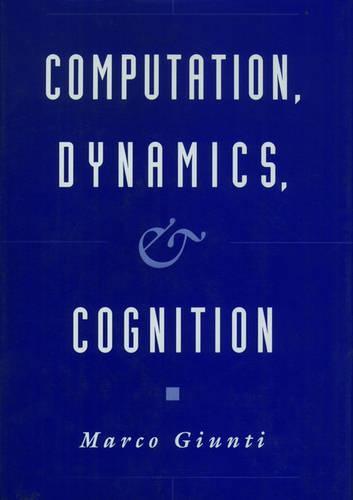Overview
Currently there is growing interest in the application of dynamical methods to the study of cognition. Computation, Dynamics, and Cognition investigates this convergence from a theoretical and philosophical perspective, generating a provocative new view of the aims and methods of cognitive science. Advancing the dynamical approach as the methodological frame best equipped to guide inquiry in the field's two main research programs--the symbolic and connectionist approaches--Marco Giunti engages a host of questions crucial not only to the science of cognition, but also to computation theory, dynamical systems theory, philosophy of mind, and philosophy of science. In chapter one Giunti employs a dynamical viewpoint to explore foundational issues in computation theory. Using the concept of Turing computability, he precisely and originally defines the nature of a computational system, sharpening our understanding of computation theory and its applications. In chapter two he generalizes his definition of a computational system, arguing that the concept of Turing computability itself is relative to the kind of support on which Turing machine operate. Chapter three completes the book's conceptual foundation, discussing a form of scientific explanation for real dynamical systems that Giunti calls ""Galilean explanation."" The book's fourth and final chapter develops the methodological thesis that all cognitive systems are dynamical systems. On Giunti's view, a dynamical approach is likely to benefit even those scientific explanations of cognition which are based on symbolic models. Giunti concludes by proposing a new modeling practice for cognitive science, one based on ""Galilean models"" of cognitive systems. Innovative, lucidly-written, and broad-ranging in its analysis, Computation, Dynamics, and Cognition will interest philosophers of science and mind, as well as cognitive scientists, computer scientists, and theorists of dynamical systems. This book elaborates a comprehensive picture of the application of dynamical methods to the study of cognition. Giunti argues that both computational systems and connectionist networks are special types of dynamical systems. He shows how this dynamical approach can be applied to problems of cognition, information processing, consciousness, meaning, and the relation between body and mind.
Full Product Details
Author: Marco Giunti (formerly Research Associate in History and Philosophy of Science, formerly Research Associate in History and Philosophy of Science, Indiana University, USA)
Publisher: Oxford University Press Inc
Imprint: Oxford University Press Inc
Dimensions:
Width: 16.20cm
, Height: 1.90cm
, Length: 23.80cm
Weight: 0.461kg
ISBN: 9780195090093
ISBN 10: 0195090098
Pages: 192
Publication Date: 24 July 1997
Audience:
Professional and scholarly
,
Professional & Vocational
Format: Hardback
Publisher's Status: Active
Availability: Manufactured on demand

We will order this item for you from a manufactured on demand supplier.
Reviews
.,. this book is highly recommended. --Choice<br>
<br>. .. this book is highly recommended. --Choice<br>
... this book is highly recommended. --Choice ... this book is highly recommended. --Choice



